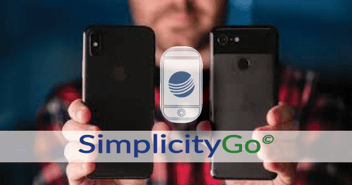New Regulations in Telecommunications
Kari’s Law, RAY BAUM’s Act, and STIR/SHAKEN
The telecommunications industry has recently seen many new regulations from the Federal Communications Commission (FCC) regarding 911 protocols and fraud protection systems. Some have already gone into effect, and some are just on the horizon. Read on to learn more about these new measures, and how to ensure your company is compliant.
Kari’s Law
Kari’s Law applies to Multi-Line Telephone Systems (MTLS) and required compliance by February 16, 2020. The law is named for Kari Dunn, after she was murdered and her father drove the efforts to get it passed. The law states that enterprises with MTLS are prohibited from requiring a “prefix” number - like dialing “9” - to reach an outside line when dialing 911. Additionally, when a 911 call is made from an MTLS, a notification must be sent to appropriate on-site personnel to alert them of the emergency.
RAY BAUM’s Act
While Ray Baum was a lawyer who played an integral role in passing this act, the name is also an acronym, standing for “Repack Airways Yielding Better Access for Users of Modern Services.” Section 506 deals with 911 regulations, requiring organizations using MTLS to provide an automatic dispatchable location for all 911 calls.
911 Regulatory Checklist
Kari’s Law and RAY BAUM’s Act affect a wide range of organizations, including companies with multiple office locations, campuses, hospitals, hotels, financial institutions, and more. To ensure your company is in compliance with these important emergency measures, consider the following questions to get started:
- Can users of your phone system directly call 911 without an access code?
- Have you identified the key personnel who should receive emergency notifications?
- Have you accurately mapped user endpoint locations, including address, building, floor, and/or room?
- Do you have a plan for virtual workers and satellite offices?
- Have you tested your compliance across endpoints by calling 933? This will trigger an automated voice message replaying the caller name, callback number and address assigned to that endpoint.
STIR/SHAKEN
By 2023, telecommunications providers like Simplicity will be required by the FCC to implement a STIR/SHAKEN solution. STIR/SHAKEN is a technology security framework designed to reduce fraudulent robocalls and illegal phone number spoofing. The idea behind STIR/SHAKEN is to authenticate caller ID and inform the called party that the caller ID has been verified. This takes two simple steps:
- The originating telephone service provider authenticates the call and sends a digitally signed Identity token with the call.
- The terminating service provider verifies the signature and token and, if successfully verified, informs their subscriber that this is a verified call.
In the late spring of 2021, Simplicity VoIP will finish testing for our system, and will be in compliance with federal law as an authorized STIR/SHAKEN Authentication provider.
For questions regarding your telecommunications services, or your company’s compliance with these regulations, please contact Simplicity today!



